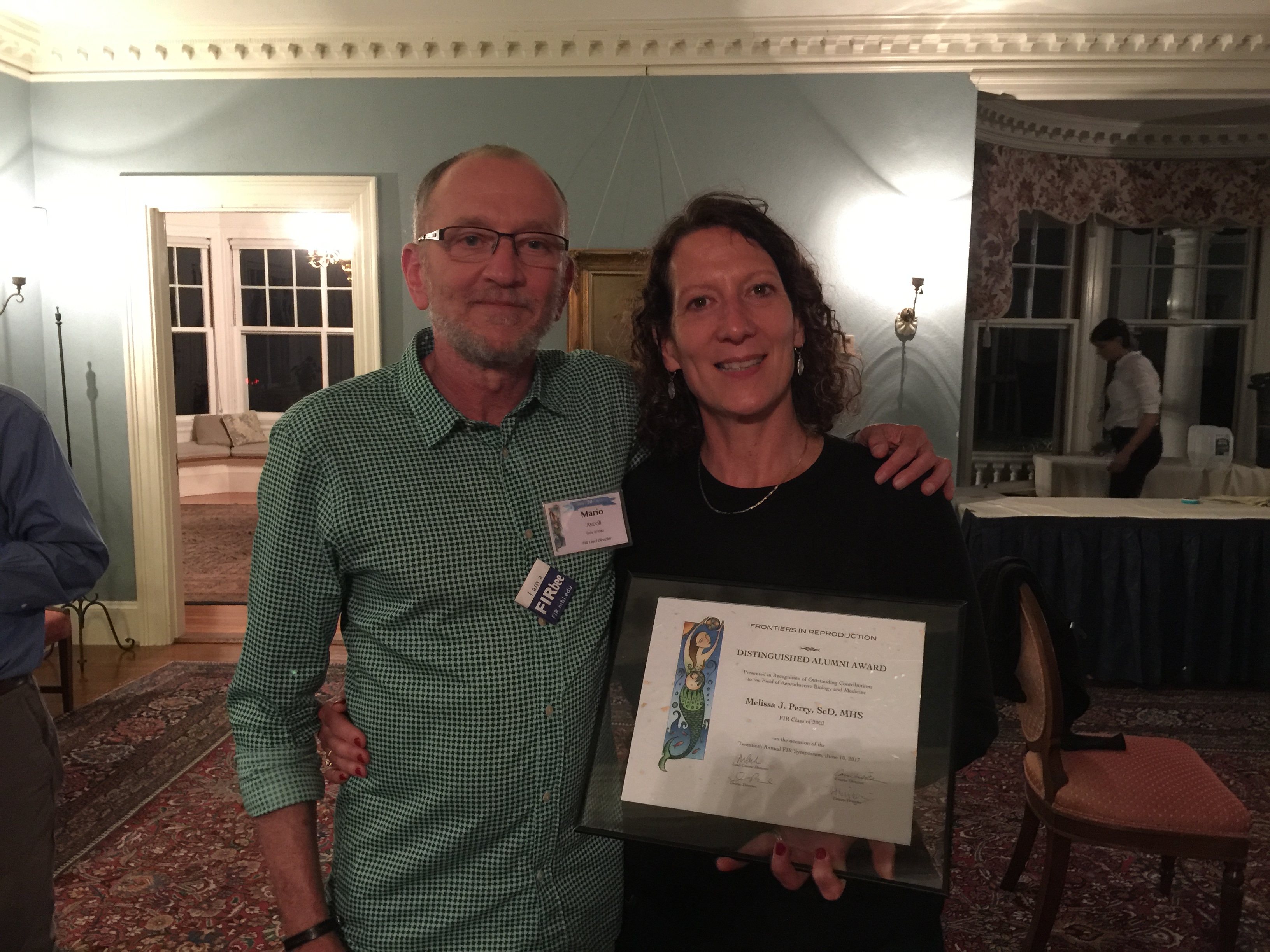The Woods Hole Marine Biological Laboratory Frontiers in Reproduction Program awarded Environmental and Occupational Health (EOH) Professor Melissa Perry for the significance of her achievements and the international recognition she has received for her work investigating the influence of chemical agents on reproduction. Perry is currently serving as the Milken Institute School of Public Health’s Interim Associate Dean for Research.
Perry’s laboratory in the George Washington University’s new Science and Engineering Hall focuses on reproductive epidemiology and hormone disruptors, and her group has developed new techniques for high-volume identification of chromosomal abnormalities in human sperm cells. Her research group was the first to use semi-automated imaging methods to show how pesticides can impact sperm abnormalities know as aneuploidy, which are associated with the presence of an abnormal number of chromosomes. She has published dozens of articles on the subject, some with EOH students and alumni, and she often employs department students in her laboratory.
Perry was recognized as a distinguished alumna of the Marine Biological Laboratory Frontiers in Reproduction Course, a Reproductive Biology and Medicine training program which she attended 14 years ago when she was an Assistant Professor at Harvard University. The Frontiers in Reproduction program is regarded as a premier training opportunity for up-and-coming reproductive biologists, and she was one of the few epidemiologists to attend the course. “Most of the students were molecular and reproductive biologists with in-depth training in laboratory experimental investigation with mice and rats, whereas I had only studied humans. I am humbled to be honored as a distinguished alumni,” she says.
At the event in early June when she received the award, Perry also gave a talk titled “Environmental Chemicals and Human Sperm Aneuploidy: It All Started at Frontiers in Reproduction.” The award was presented to her by Dr. Mario Ascoli, who directs the Frontiers in Reproduction Course.


